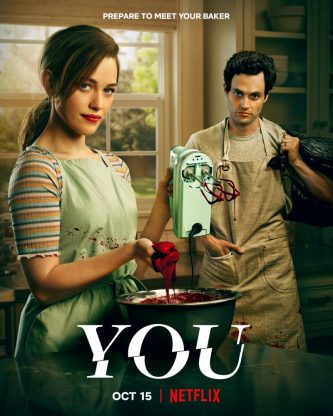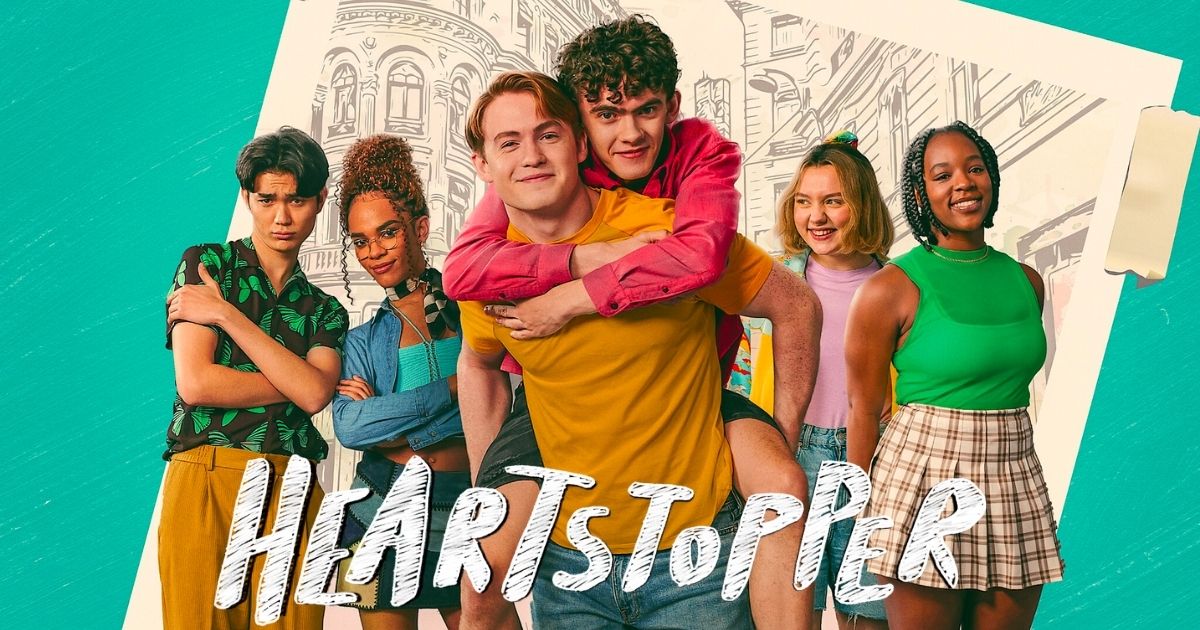
Major spoilers ahead for Season Three of You (2021).
Hello “You,” season three. Charming murderer Joe Goldberg, played by Penn Badgely, returned to Netflix on Oct. 15 with big expectations. The show, adapted from the novels by Caroline Kepnes, is the gift that keeps on giving, or rather the show that keeps on entertaining, as it has quickly overthrown “Squid Games” for the number one spot on Netflix’s Top Ten.
“Sometimes a man gets exactly what he wishes for, and that can be the most perfect punishment of all,” Joe thinks as he quotes “Crime & Punishment” in the final episode of season two, when he realizes his latest obsession turns out to be a murderer, and thus his perfect counterpart. In the finale, Joe and Love, played by Victoria Pedretti, are left unscathed by the pile of bodies they leave behind as they move to Madre Linda to raise their baby.
Season three begins relatively similar to seasons one and two as we find Joe in his typical pattern of looking for a beautiful woman to stalk, only this time he’s juggling a newborn and a wife he no longer deems fit for him, as she is, well, a mirror image of him. The season holds nothing back, as by the end of the first episode we have our first fatality when Love outright axes the next-door neighbor, Natalie, Joe’s new object of obsession.
As the third episode title, “Missing White Woman Syndrome,” the show sort of plays into a ‘Gone Girl’ redux, where we are in the perspective of the people trying to cover up the murder. Called ‘America’s favorite past-time,’ the show pokes fun at the immense amount of coverage white women get when they go missing.
The death of Natalie, played by Michaela McManus, throws the couple’s relationship through a loop as they try to balance Love’s new bakery, their son Henry and now the murder of a woman whose tech executive husband will not rest until he finds his wife’s killer. As seen in previous seasons, we also meet colorful side characters who provide tension and social commentary per Joe’s inner monologue. Madre Linda, a rich California suburb, is teeming with such people obsessed with calorie counting, fitness regimes and ultra-exclusive preschools.
This commentary plays into the many others the show includes, with the emphasis on influencer culture mentioned heavily in season two, and of course the overarching social commentary on why people like or even love Joe. The question Badgely has raised from previous seasons before, “To me, it’s ‘how far are we willing to go to forgive an evil white man?’” is the main root as to what the show looks to explore.
Love’s proclivity to murdering girls Joe has a crush on is not enough to stop him; Joe unintentionally (or knowing him, intentionally) finds a new woman with a troubled past who he deems needs his help — his pre-requisite in a lover — in his co-worker Marienne. He goes on to ‘fall in love’ with Marienne, played by Tati Gabrielle, all the while trying to corral an unraveling Love from increasing their collective body count.
One of the most satisfying parts of the season was the full uncovering of Joe’s past. As past seasons have shown tidbits of, at a young age Joe had long witnessed his mother being abused, which resulted in him shooting his father and being sent to an orphanage. In flashbacks, we see a pre-teen Joe in the beginnings of his savior tendencies, which he finally deems “mommy issues,” as he grows fond of the institution’s sweet nurse who is also abused by her boyfriend. In this, we finally get the full answer as the audience that Joe is not in love with these women he follows and captures, he loves the thought of “saving them.”
This is cute https://t.co/c5KoPqrqa7
— Penn Badgley (@PennBadgley) October 19, 2021
In an interview with Access Hollywood, Badgely and Pedretti explain why they think so many viewers are drawn to watch the show, and even empathize with Joe and Love.
“I think people find themselves in different characters, and just being able to explore these dynamics; they’re dealing with a lot of things that people deal with in relationships within parenting, in marriage, but in this extreme level. I think when it’s working the most, it’s [through] Joe,” Pedretti said.
In the finale of season three, after much back and forth of distrust and lies, Joe believes he will leave with Marienne and her daughter, along with Henry, and live happily ever after (which for Joe means until he finds his next victim). Of course, Love, being his perfect match, temporarily paralyzes Joe in order to kill Marienne and stop Joe from leaving. In the height of the episode we see Joe cannot be outsmarted, as he always has a back up plan — i.e. season one, in which he has a key hidden in case he gets locked in his own glass box.
Ultimately, Love dies.
In the end, Joe finds himself in the same position as to when he started way back in season one. Framing his and Love’s deaths masterfully, the crimes are all pinned on his wife, and the news goes out that they both died from a murder-suicide and their house goes up in flames, to the fitting Taylor Swift song “Exile.” Now Love is an underground feminist icon, Joe leaves Henry with a loving family, and their almost-victims Sherry and Cary become TED Talk influencers as ‘survivors.’ Joe is once again free to live without strings, just as he likes.
With an outstanding 95% rating from critics on Rotten Tomatoes, there’s no question as to why a season four was announced days before the premiere of season three.
We end off with Joe, now Nick, searching for Marienne, or more likely a new girlfriend (victim) in Paris. Fans can be likely to hear a ‘bonjour, toi’ in the fall of 2022.
In three seasons:
Joe Goldberg Kill Count: 10.
Love Quinn Kill Count: 6 (one accidental, yes her first husband).
















